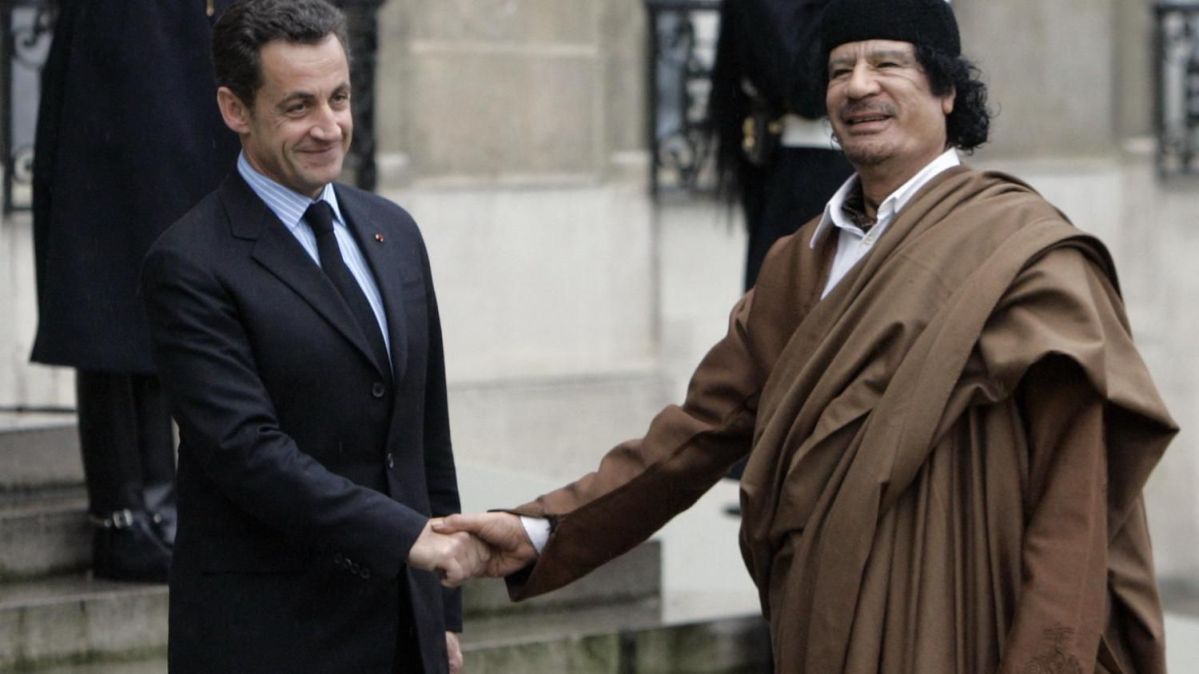US ‘plans to attack seven Muslim states’
Presidential hopeful General Wesley Clark says the White House devised a five-year plan after the 9/11 strikes to attack seven majority-Muslim countries.
Published On 22 Sep 2003
A former commander of NATO’s forces in Europe, Clark claims he met a senior military officer in Washington in November 2001 who told him the Bush administration was planning to attack Iraq first before taking action against Syria, Lebanon, Libya, Iran, Somalia and Sudan.
The general’s allegations surface in a new book, The Clark Critique, excerpts from which appear in the latest edition of the US magazine Newsweek.
Clark says after the 11 September 2001 attacks, many Bush administration officials seemed determined to move against Iraq, invoking the idea of state sponsorship of terrorism, “even though there was no evidence of Iraqi sponsorship of 9/11 whatsoever”.
Ousting Saddam Hussein promised concrete, visible action, the general writes, dismissing it as a “Cold War approach”.
Clark criticises the plan to attack the seven states, saying it targeted the wrong countries, ignored the “real sources of terrorists”, and failed to achieve “the greater force of international law” that would bring wider global support.
| “There was no evidence of Iraqi sponsorship of 9/11 whatsoever”General Wesley Clark |
He also condemns George Bush’s notorious Axis of Evil speech made during his 2002 State of the Union address. “There were no obvious connections between Iraq, Iran, and North Korea,” says Clark.
Sign up for Al Jazeera
Week in the Middle East
Catch up on our coverage of the region, all in one place.Sign up

By signing up, you agree to our Privacy Policy
Clark’s culprits
The former NATO commander acknowledges Iranian and Syrian support for resistance groups such as Lebanon’s Hizb Allah and the Palestinian movement Hamas.
“But neither Hezbollah [sic] nor Hamas were targeting Americans,” he writes. “Why not build international power against Al Qaeda?”
Instead, Clark points the finger at what he calls “the real sources of terrorists – US allies in the region like Egypt, Pakistan, and Saudi Arabia”.
Clark blames Egypt’s “repressive policies”, Pakistan’s “corruption and poverty, as well as Saudi Arabia’s “radical ideology and direct funding” for creating a pool of angry young men who became “terrorists”.
 Clark with wife Gert after naminghimself a presidential candidate Clark with wife Gert after naminghimself a presidential candidate |
| Clark with wife Gert after naming himself a presidential candidate |
The recent Democrat Party convert says Bush should have adopted a more preventive measures and targeted extremist leaders. “The way to beat terrorists was to take away their popular support,” adds Clark, though he offers little to suggest how this would be achieved.
But White House policy was quickly set in order to achieve particular goals, Clark writes, saying the US administration used the 9/11 attacks to address broader objectives in the Middle East.
Clark, who supervised NATO’s campaign to oust Serbia’s forces from Kosovo in 1999, also takes a swipe at the United States’ allies in Europe, which provided staging bases and planning headquarters for “radical” groups.
War record
The retired general last week declared his intention to win the Democrat nomination to challenge George Bush for the presidency in 2004.
Just days after entering the presidential race, Clark has raced ahead of the nine other Democratic contenders in the latest polls.
Many political observers have portrayed Clark as an anti-war candidate whose own war record – he was decorated after being shot and wounded while serving in Vietnam – means he cannot be accused of lacking courage or patriotism.
Clark has frequently criticised Washington’s policy towards Iraq.
He claimed previously that after the 9/11 attacks, he was pressed by the Bush administration to link the strikes directly to Iraq but refused – a claim the White House denies. However, once the war on Iraq began, he urged decisive action to achieve a rapid US victory.
Despite his anti-war stand on Iraq, the general has had a reputation for being belligerent. He was criticised during the Kosovo campaign for defending attacks on civilian Serbian targets, including the bombing of a television station that left about 20 journalists and other staff dead.
SOURCE: AL JAZEERA
source https://www.aljazeera.com/news/2003/9/22/us-plans-to-attack-seven-muslim-states
Categories: Africa, America, American History, Americas, Arab World, Iran, Iraq, Lebanon, Libya, North Africa, Somalia, Sudan, Syria, United States, USA



